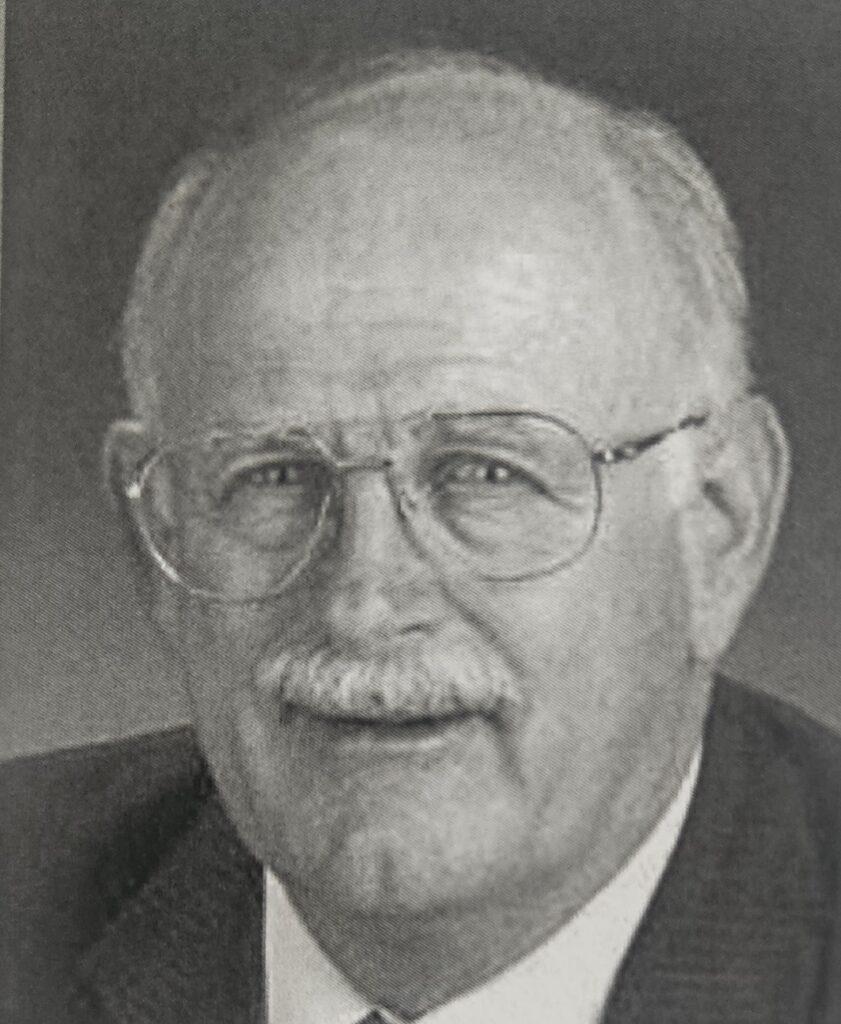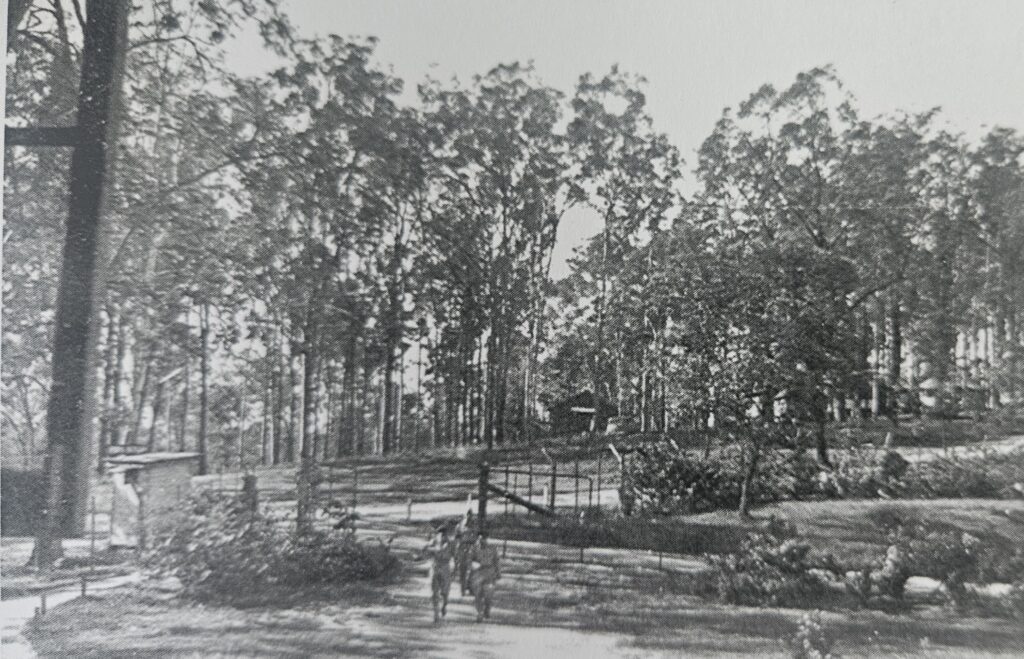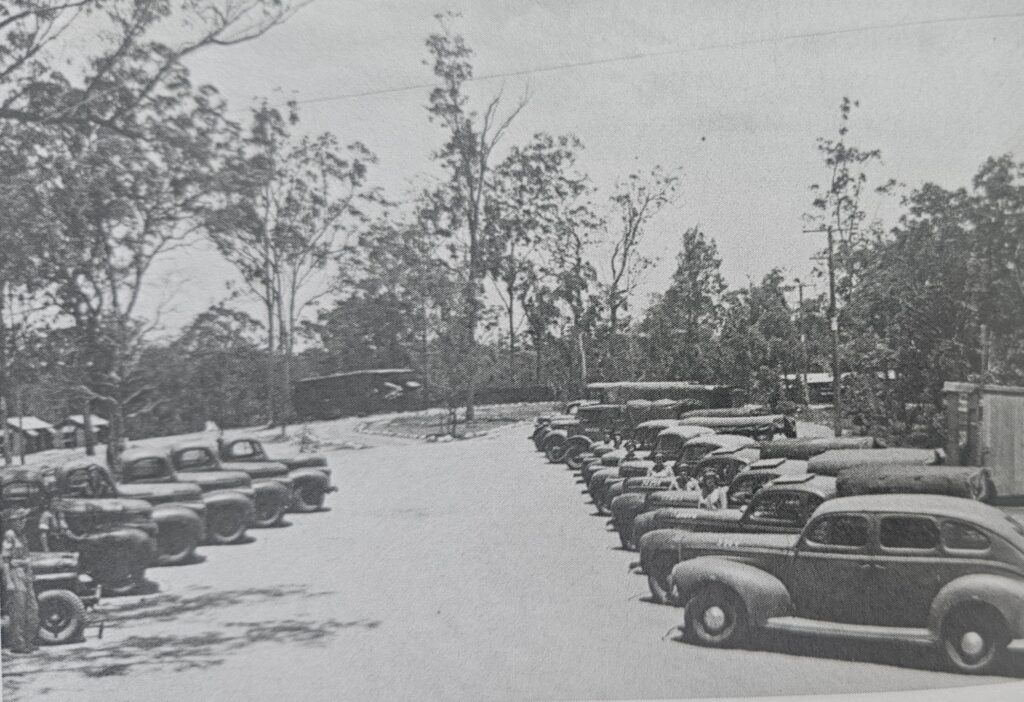I was born at the start of WWII, but I do remember a few things about those years. I remember the air-raid sirens, and the blacked-out windows. I remember taking the tram with my grandmother to get coupons at Ashgrove, then Red Hill (we lived in Red Hill then). We needed coupons to buy food and clothing. And I can remember my grandfather in his tin hat, with his baton and his holster and .38 Colt! He was the local air-raid warden (and by day he was a bank manager).

Merv Bryant
My father was one of the civilians employed by the US Army. From what he told me, he worked predominantly ((around Wacol” (which stretched as far as Richlands) with other civilians (engineers etc).
Their job was to supervise the destruction of damaged and contaminated munitions (e.g. those which had been immersed in salt water became unstable and so could not be used). Much had been brought out of the Pacific Theatre of War. These dangerous munitions were placed in pits – some very deep – then covered with tons of earth before being detonated.
This hazardous work was mainly done by some of the 1500 Negro soldiers who handled the transport and storage of the munitions that came through Brisbane.
PX (POSTAL EXCHANGE)
My father was able to go to the US PX canteen in Brisbane (most civilians working for the Americans were given access). My father told me that these American PXs were the source of a lot of goods for the local black market-for cigarettes, chewing gum, nylons, alcohol etc. These things were largely unavailable to the civilian population, who were using coupons to buy meat and butter, clothing and fuel.
This was a challenge for the enterprising young fellows (American as well as Australian), who often filled suitcases with goodies and whisked them out the back of the premises – and into the thriving black market of Brisbane. How my father knew all this I cannot imagine!

Toni de Wolfe
My aunt was one of MacArthur’s drivers in Brisbane, but her story started overseas.
She actually arrived back in Australia about the same time as Macarthur, as an evacuee from the Dutch East Indies (now Indonesia), which were overrun by the Japanese early in 1942. Her husband had been killed when the KLM plane he was piloting was shot down, killing all the evacuees he was transporting from the fall of Batavia (now Jakarta). In the chaos, another pilot simply took another plane, and with five uni students, a doctor, my aunt and her three year old daughter – plus US $1m – and escaped to safety. What happened to the US $1 million? It was taken by Government as it came out of a US Bank Agency. (All cash was removed so the enemy didn’t gain US currency to fund their war effort).

They were strafed in the Timor Sea, but managed to limp into Darwin on one engine.
So my aunt told me that driving MacArthur around was a breeze.
After the War
Working in Wacol introduced my father to this area, and he must have liked it. It was in 1947-48 that my father bought a property in Blunder Rd, and I have lived in the Inala area ever since then.
Bushfires raged every couple of years then – often in the dry and windy August. And as the flames raced through the bush, we could hear the explosions as stray ammunition went off. So, we had reminders of the Darra Ordnance Depot for many years as I was growing up.
